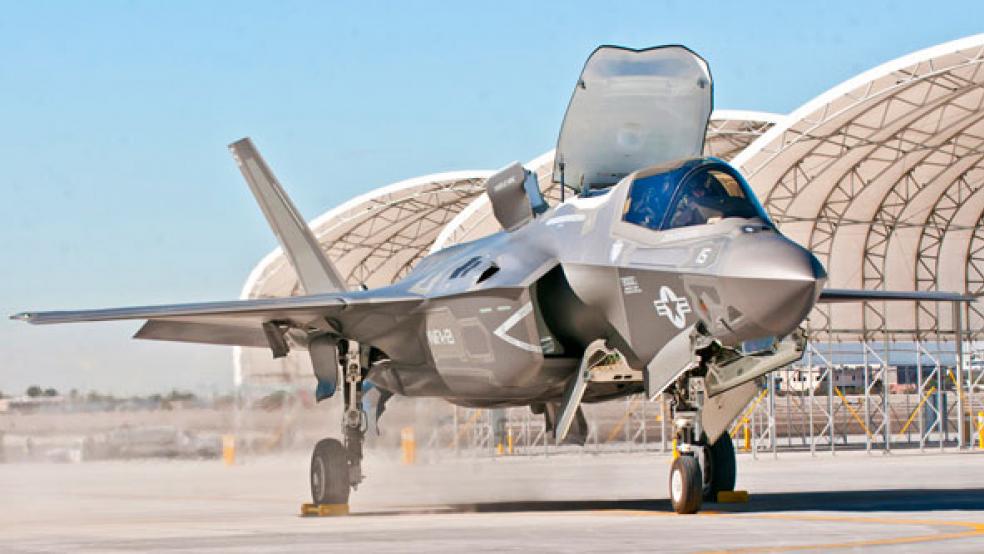The sweeping victory by Justin Trudeau and the Liberal Party in Canada this week could have costly implications for the F-35 Joint Strike Fighter program.
Trudeau, the son of former Prime Minister Pierre Trudeau, has pledged to ditch a longstanding Canadian plan to buy 65 planes for around $9 billion and seek a cheaper alternative to replace the country’s CF-18 fleet.
“There are many other fighters at much lower price points that we can use that have been proven, that we will actually be able to deliver in a timely way," he said during a campaign stop last month.
Related: The $1 Trillion Question for the F-35: Is the U.S. Buying an Inferior Plane?
Canada is one of nine partner nations that have come together to develop and build the F-35. As a “level three” partner, it has contributed about $160 million to the development costs of the plane. However, Canada has not yet signed an agreement to buy a set number of aircraft.
Ottawa put its F-35 program on hold in 2012 after the country’s inspector general voiced concerns about how the plane was selected, sparking a 14-month government review. The results of the study, released last year, did not recommend choosing another platform.
Prime Minister Stephen Harper and the ruling Conservative Party warned in recent weeks that abandoning the F-35 would “crater” the country’s local aerospace industry, which has already secured more than $600 million in contracts to build components for the program. The lifetime cost of the F-35 program for Canada could run anywhere from $16 billion to $49 billion over several decades.
International support of the Joint Strike Fighter is vital to the program’s future. The U.S. alone has spent around $400 billion to develop the fighter, making in the costliest weapons program the country’s history.
Related: The Flawed F-35: Why the Pentagon Will Never Shoot It Down
International purchases help drive down the fighter’s per unit price and make the program’s cost more palatable in Washington and other capitals. If partners such as Canada back out, it would drive costs even higher for the remaining participants.
Since Harper only stated an intention to buy the F-35, there are no formal contracts and therefore no cancellation fees should Trudeau decide to pull the plug. However, given the complicated nature of the JSF program and the stunning levels of funding involved, some kind of litigation could conceivably arise. Meanwhile, Canadian subcontractors in the program could see their existing contracts evaporate or miss out on future work.
Related: The F-35 May Be the Last Manned Fighter Plane the U.S. Ever Flies
For now, Lockheed Martin, the F-35’s prime contractor, isn’t panicking.
“Lockheed Martin has not received any formal notification from the Canadian Government that their status has changed concerning the F-35 program,” spokesman Michael Rein said in an email. “They are a valued partner and we will continue to support them through their decision process to replace their ageing CF-18 fleet.”
The spokesman for the Defense Department’s JSF program office said “Canada remains a partner in the F-35 program. It is inappropriate to speculate on program impacts as a result of Canada’s recent election"
The Pentagon plans to buy around 2,440 F-35s over the next few decades.





